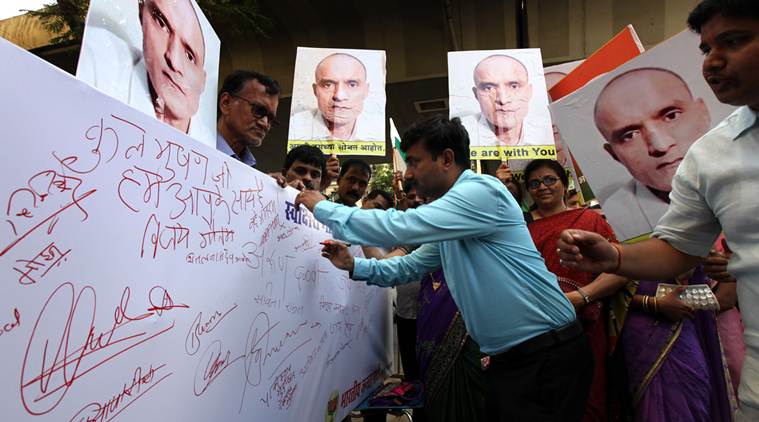Court observes that the evidence before it shows that both parties have considered Mr Jadhav to be an Indian national. Indeed, Pakistan has so described Mr Jadhav on various occasions, including in its “letter of assistance for criminal investigation against Indian national Kulbhushan Sudhair Jadhev”. Consequently, the Court is satisfied that the evidence before it leaves no room for doubt that Mr Jadhav is of Indian nationality.

READ | After Masood Azhar blacklisting, ICJ verdict in Kulbhushan case isolates Pakistan
On Pakistan’s failure to provide consular access
Pakistan responded to India’s request for consular access for the first time in its note verbale dated 21 March, 2017, in which it stated that “the case for consular access to the Indian national, Kulbushan Jadhev, shall be considered, in the light of Indian side’s response to Pakistan’s request for assistance in investigation process and early dispensation of justice”.
The Court is of the view that the alleged failure by India to cooperate in the investigation process in Pakistan does not relieve Pakistan of its obligation to grant consular access under Article 36, paragraph 1, of the Convention, and does not justify Pakistan’s denial of access to Mr Jadhav by consular officers of India.
READ | ICJ verdict in Kulbhushan Jadhav case: Key points
On exception to granting consular access in cases of espionage
The object and purpose of the Vienna Convention as stated in its preamble is to “contribute to the development of friendly relations among nations”. The Court thus concludes that, when interpreted in accordance with the ordinary meaning to be given to the terms of the Vienna Convention in their context and in the light of its object and purpose, the Convention does not exclude from its scope certain categories of persons, such as those suspected of espionage.
Story continues below this ad
 BJP party workers during a signature campaign for Kulbhushan Jadhav. (Express Photo by Prashant Nadkar)
BJP party workers during a signature campaign for Kulbhushan Jadhav. (Express Photo by Prashant Nadkar)
On Pakistan not informing Jadhav of his rights
The Court observes that Pakistan has not contested India’s contention that Mr Jadhav was not informed of his rights under the (Vienna) Convention. To the contrary, in the written and oral proceedings, Pakistan consistently maintained that the Convention does not apply to an individual suspected of espionage. The Court infers from this position of Pakistan that it did not inform Mr Jadhav of his rights under Article 36, paragraph 1 (b), of the Vienna Convention, and thus concludes that Pakistan breached its obligation to inform Mr Jadhav of his rights under that provision.
Full text: Kulbhushan Jadhav ICJ verdict
On delay by Pakistan in informing India about Jadhav’s arrest and detention
Pakistan claims that at the time of his arrest on 3 March, 2016, Mr Jadhav was in possession of an Indian passport bearing the name “Hussein Mubarak Patel”. In the circumstances of the present case, the Court considers that there were sufficient grounds at the time of the arrest on 3 March, 2016 or shortly thereafter for Pakistan to conclude that the person was, or was likely to be, an Indian national, thus triggering its obligation to inform India of his arrest.
Story continues below this ad
READ | Salve hails verdict, says ICJ protected Jadhav from being executed
There was a delay of some three weeks between Mr Jadhav’s arrest on 3 March, 2016 and the notification made to India on 25 March, 2016. The Court recalls that “neither the terms of the (Vienna) Convention as normally understood, nor its object and purpose, suggest that ‘without delay’ is to be understood as ‘immediately upon arrest and before interrogation’.”

 ICJ Judge Abdulqawi Ahmed Yusuf delivers the verdict in the Kulbhushan Jadhav case at The Hague on Wednesday. (PTI)
ICJ Judge Abdulqawi Ahmed Yusuf delivers the verdict in the Kulbhushan Jadhav case at The Hague on Wednesday. (PTI)
 BJP party workers during a signature campaign for Kulbhushan Jadhav. (Express Photo by Prashant Nadkar)
BJP party workers during a signature campaign for Kulbhushan Jadhav. (Express Photo by Prashant Nadkar)





